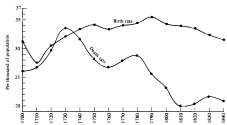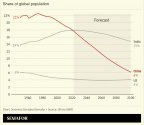That would be great for overseas Chinese but what do natives get out of it? Japan tried repatriation of Japanese Brazilians in the 1970s and 1980s and found that Japanese Brazilians were culturally western already.China should now launch a grand repatriation initiative for all ethnic Chinese living in the US, both citizens and those of Chinese ancestry. In direct imitation of Israel’s law of return US citizens of Chinese descent should be granted the automatic right to relocate to China and obtain Chinese citizenship. Similar to Israel, this right would only be revoked if the person is engaged in "anti-Chinese activities, is a hazard to the security of the state, or has a criminal past that may endanger public welfare. [Wiki]" China should also match Israel's benefits, such as "a unified price for flights home, tax benefits for returning residents, extra hours and supplementary teaching for children and programs earmarked for entrepreneurs in industry and excelling academics."
The strategic objective is to deprive the U.S. of its most capable and crucial immigrant group and accelerate US decline into a fractured mongrel society.
At the minimum overseas returnees must submit to all laws and not demand any special treatment. That sounds reasonable until you realize many can't actually do that. And that is a problem.


